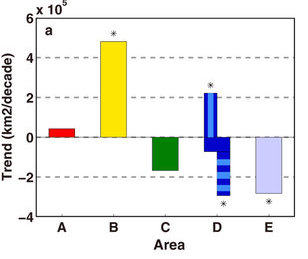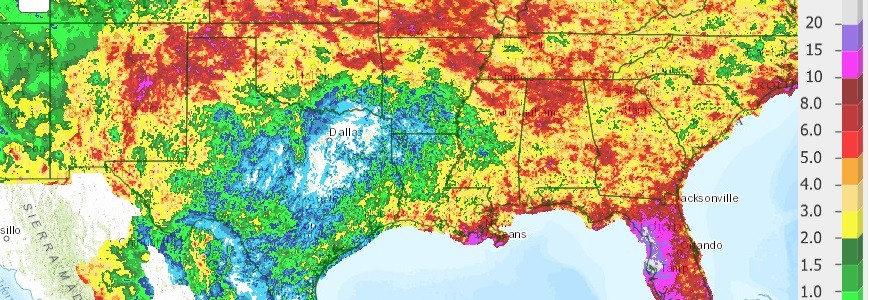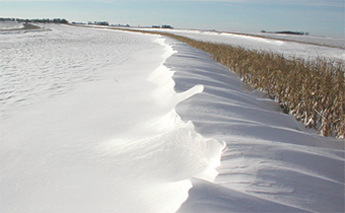Climate science
-

A new study published in Nature magazine shows that dry climates across the world have increased. They note that “About 5.7% of the global total land area has shifted toward warmer and drier climate types from 1950–2010, and significant changes include expansion of arid and high-latitude continental climate zones, shrinkage in polar and midlatitude continental…
-

Earlier today I wrote about the difficulty that hurricane forecasters were having in making a good forecast on where Erika is going. Here’s a little more information to show you just how tough it can be. Hurricane forecasters, like weather forecasters and climate modelers, use a variety of computer models to simulate what the future…
-

USA Today published an article yesterday looking at the “flash” drought that is currently occurring in the southern US. If you’ve never heard of the term “flash drought”, then you should know this is a term climatologists use for a drought which comes on very quickly and shows almost immediate impacts to crops and livestock.…
-

Once more, the Old Farmer’s Almanac and the Farmers’ Almanac have hit the bookstores and checkout aisles in the supermarkets, ready to provide instant weather forecasts for the next year to anyone who is willing to pay the price. And the media always cover this event as if there is any skill at all in…
-

There are promos out for a new reality television show on TBS called “America’s Next Weatherman.” Meteorologists (I know many, am married to one, and am one myself) are generally troubled by the premise of the show. In general, the show asks a handful of weather enthusiasts to perform wacky stunts in order to compete for…
-

The National Weather Service provided a one-page summary of PoP (“probability of precipitation”) forecasting today that is a good summary of this statistic. It is important to keep in mind that forecasts are always made for a specific time period and a specific area over which the PoP forecast is valid. “Probability of precipitation” is what…
-

Yesterday parts of Georgia experienced flooding rains. They were very localized and many areas received no rain at all. The NWS daily rainfall estimate from https://water.weather.gov/precip shows the spatial variability of rain across the area. You will note two areas of heavy rainfall in red in north-central Georgia centered on Athens-Clarke County and Morgan County…